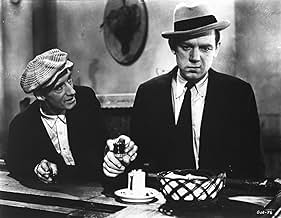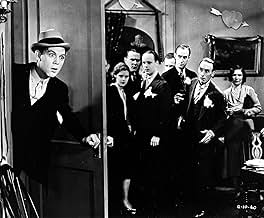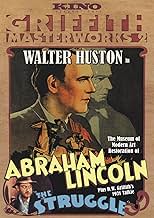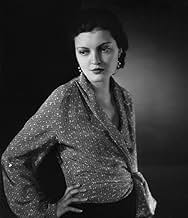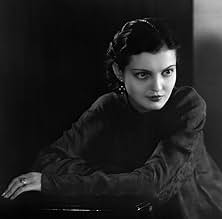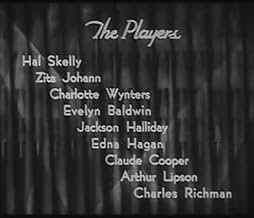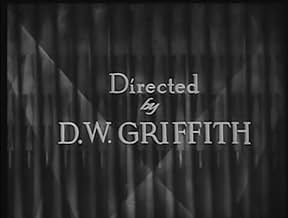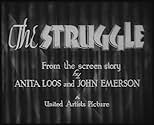Aggiungi una trama nella tua linguaA young couple's marriage is jeopardized by the husband's descent into alcoholism.A young couple's marriage is jeopardized by the husband's descent into alcoholism.A young couple's marriage is jeopardized by the husband's descent into alcoholism.
- Regia
- Sceneggiatura
- Star
Kate Bruce
- Granny
- (non citato nei titoli originali)
Tammany Young
- Barfly
- (non citato nei titoli originali)
Recensioni in evidenza
1st watched 1/21/2010 – 5 out of 10 (Dir-D.W. Griffith): Interesting movie about the struggle against alcoholism that doesn't quite hit the mark due to it's lack of showing us how the battle can be won. The story is about a good-ole boy named Jimmy, played by Hal Skelly, who doesn't like to put the juice down until he meets his to-be wife. She persuades him to stop drinking if they get married and he does OK until after their first child is born and then he falls back into his same old ways. He loses his job, his family, and practically his life until he's rescued again by his wife. The movie shows how dependent family members are on the alcoholics and how difficult it is for the addicted to change his ways, but it doesn't make it clear how things can change. Things just kind of get better in the movie eventually and we know this doesn't happen in real life. A valiant effort by renowned silent movie director D.W. Griffith but there doesn't seem to be a clear focus on the purpose of the film and therefore it doesn't all quite jell. He drifts from an initial focus on the prohibition to eventually being a more personal movie but never quite aces either one. The quick ending kind of ruins what could have been an important piece of film about this disease instead it's just an OK film about this struggle.
It's no wonder that "The Struggle" flopped when released in late 1931. Even for that time it was considered stagey and out of date. When you consider that it was the work of veteran innovator D.W. Griffith it's all the more surprising that it is so humdrum in cinematic technique. It's about a factory worker (Hal Skelly) who struggles with alcohol addiction, gradually alienating his wife (Zita Johann) and daughter and sliding into impoverishment and dementia. Skelly is excellent as the drunk, as great a physical actor as he was in "The Dance of Life" a couple of years earlier. Johann seems uncomfortable. In general the direction of the actors, particularly the timing of their dialogue, is stiff. The scenes where Skelly hits rock bottom in a dark hovel are hideously effective but even the lighter scenes are dreary, taking place in drab apartments, barrooms and work places. The daily life of the characters as depicted in these scenes would drive anyone to drink.
I hesitated for some time before seeing "The Struggle" because it was considered by most critics to be a pathetic boring mess done by a broken man. I knew it was Griffith's final film and I didn't want to see this great master produce a terrible film at the end of his career. When I finally did view it I found that a film that is full of passion, new ideas and bold innovative strokes.
There are several innovations in the use of sound. At the time actors were careful to talk one after the other because it was thought that people talking at the same time would be too confusing for the audience. Griffith used overlapping dialog and a party scene with multiple background sounds of music and talking as well as dialog. This sounded far more natural. Also at this time actors were being told to use artificial elocution and diction when speaking on screen. They usually sounded either foreign or very upper crust. Griffith had his actors use natural accents. Hal Skelly and Zita Johnson sound like normal people who talk fast use slang and sometimes slur their words.
The most impressive innovation was in Griffith's development of the plot. The story of a man who sinks into alcoholism could and would normally be treated as a moral lesson against the evils of drink. In Griffith's hands it is personal tragedy that has to do with the strength's and weakness of the individuals involved. Jimmy becomes an alcoholic because of his own personality traits and whatever redemption he achieves is due to the strength of his love for his wife and his daughter. There is no preaching here. Griffith had done a similar film called "Isn't Life Wonderful" in Germany which influenced German filmmakers particularly Pabst in his "Joyless Street." "Joyless Street" is innovative in it's own right but it is clear where its inspiration comes from when whole sections of it are lifted from "Isn't Life Wonderful".
"The Struggle" was a financial failure. Without enough personal funds and without the confidence of any backers, Griffith would never make another film. He had lost touch with his audience. Caught in the middle of the Great Depression, American audiences wanted a moral lesson so they could fix blame, or pure escapism. The last thing they wanted was a complex personal drama to remind them of their own complex personal problems. It would be a long time before films like this would be made in America. But although Griffith had lost his audience, enough creative artists must have seen and been influenced by this film, because starting with films like Citizen Kane, we began to see films about difficult problems treated as stories that were personal to the characters involved and not as moral lessons.
There are several innovations in the use of sound. At the time actors were careful to talk one after the other because it was thought that people talking at the same time would be too confusing for the audience. Griffith used overlapping dialog and a party scene with multiple background sounds of music and talking as well as dialog. This sounded far more natural. Also at this time actors were being told to use artificial elocution and diction when speaking on screen. They usually sounded either foreign or very upper crust. Griffith had his actors use natural accents. Hal Skelly and Zita Johnson sound like normal people who talk fast use slang and sometimes slur their words.
The most impressive innovation was in Griffith's development of the plot. The story of a man who sinks into alcoholism could and would normally be treated as a moral lesson against the evils of drink. In Griffith's hands it is personal tragedy that has to do with the strength's and weakness of the individuals involved. Jimmy becomes an alcoholic because of his own personality traits and whatever redemption he achieves is due to the strength of his love for his wife and his daughter. There is no preaching here. Griffith had done a similar film called "Isn't Life Wonderful" in Germany which influenced German filmmakers particularly Pabst in his "Joyless Street." "Joyless Street" is innovative in it's own right but it is clear where its inspiration comes from when whole sections of it are lifted from "Isn't Life Wonderful".
"The Struggle" was a financial failure. Without enough personal funds and without the confidence of any backers, Griffith would never make another film. He had lost touch with his audience. Caught in the middle of the Great Depression, American audiences wanted a moral lesson so they could fix blame, or pure escapism. The last thing they wanted was a complex personal drama to remind them of their own complex personal problems. It would be a long time before films like this would be made in America. But although Griffith had lost his audience, enough creative artists must have seen and been influenced by this film, because starting with films like Citizen Kane, we began to see films about difficult problems treated as stories that were personal to the characters involved and not as moral lessons.
D.W. Griffith's final film is a talkie remake of a silent short made early in his career. It's a morality play about a man's struggle with alcoholism. Interesting subject matter, ahead of its time in some ways, but probably not the kind of thing Depression-era audiences were looking to see to escape from their troubles. Today, it's a real creaker but has a lot to recommend about it. Hal Skelly, who had a short film career before dying in a tragic car/train collision in 1934, gives an impressive performance in the lead. Zita Johann, a year away from her biggest movie role in The Mummy, makes her film debut here. She gives a subtle turn as the put-upon wife (the last of Griffith's heroines who have it rough because of the crappy men in their life). Edna Hagan, who plays Skelly and Johann's daughter, is also really good. It's a fine movie, although not without its flaws. The ending is the biggest negative, in my opinion. I can overlook the creaks and groans but I don't care for happy endings when they feel unearned. Everything in the film up to that point screamed tragedy. It just felt like a cop-out.
I'm glad to see that the previous comments have been charitable. It's interesting that Griffith was filming the same type of story back in 1909 at Biograph. There are several characteristic Griffith touches in this film -- for instance, the tenderness of the wife when her husband first comes home drunk to her, and in the penultimate scene at his bedside. I'm sorry this picture never had a general release because it is well worth seeing. Chaplin made a silent film as late as 1931; perhaps Griffith should have taken a chance and done that with "The Struggle," because it may have worked better as a silent. References are made to the early days of Griffith's career in the opening scenes of the film; 1911 would seem to have been more remote to a 1931 audience than, perhaps, 1987 seems to us today. A fascinating film.
Lo sapevi?
- QuizThis was the final feature-length film directed by D.W. Griffith.
I più visti
Accedi per valutare e creare un elenco di titoli salvati per ottenere consigli personalizzati
Dettagli
- Data di uscita
- Paese di origine
- Lingua
- Celebre anche come
- Ten Nights in a Bar Room
- Luoghi delle riprese
- Aziende produttrici
- Vedi altri crediti dell’azienda su IMDbPro
- Tempo di esecuzione1 ora 27 minuti
- Colore
- Proporzioni
- 1.20 : 1
Contribuisci a questa pagina
Suggerisci una modifica o aggiungi i contenuti mancanti


